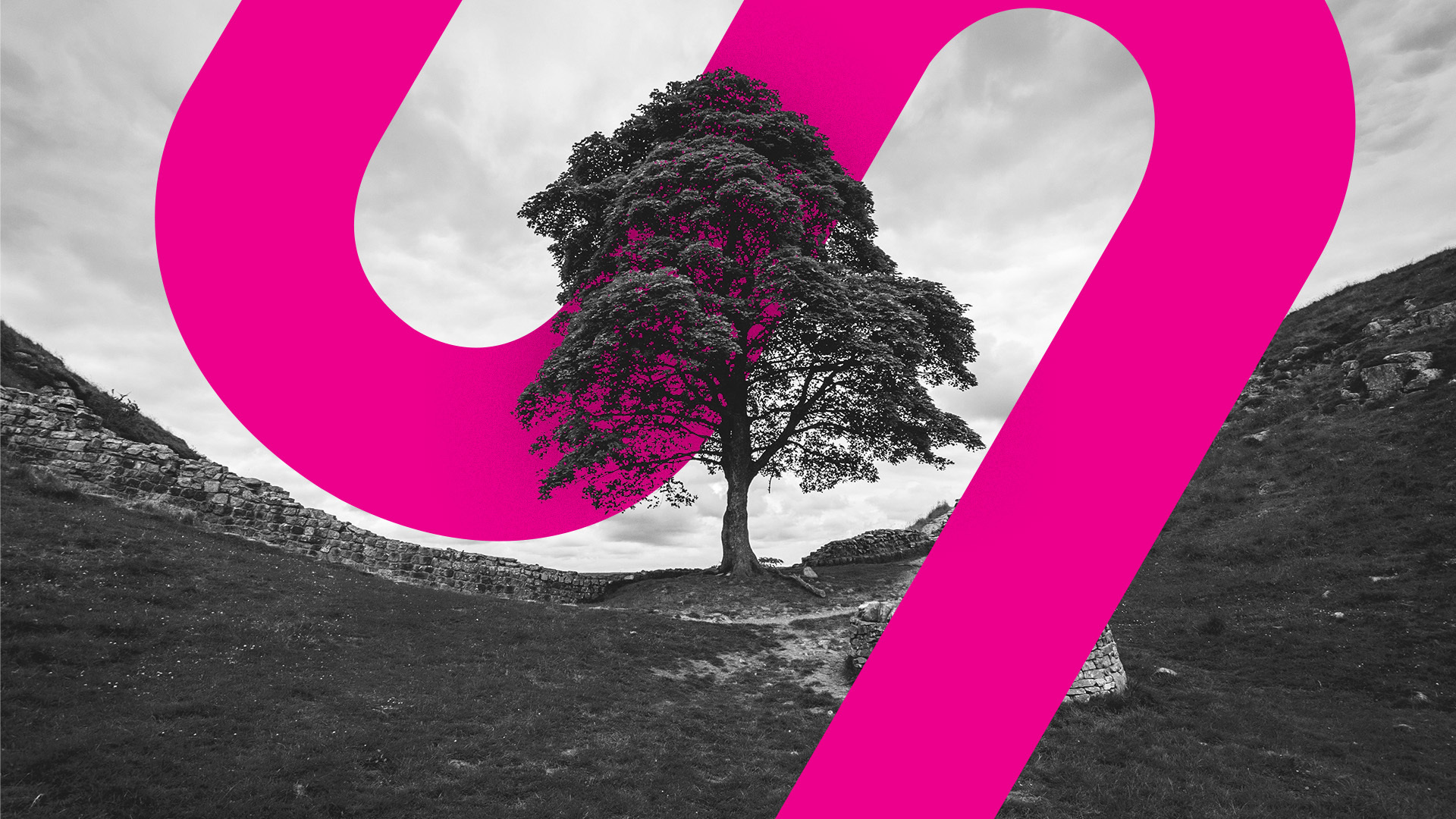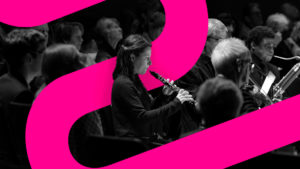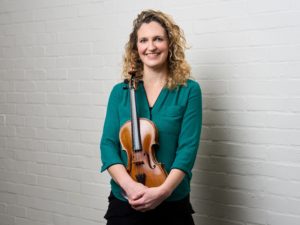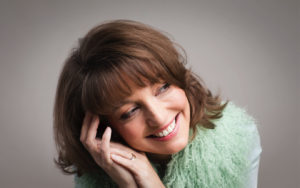
Four World Seasons: Vivaldi and Panufnik

Four World Seasons: Vivaldi and Panufnik
Antonio Vivaldi (1678-1741)
The Four Seasons
I Spring
II Summer
III Autumn
IV Winter
For 30 years Vivaldi held the appointment of music master to the Pieta Orphanage in Venice, and most of his compositions were originally written for the well-attended public concerts there. All the orphans or abandoned children were girls, and many of them seemed to have been accomplished musicians. Vivaldi could count on a good orchestra which included every kind of string or wind instrument in use during the early eighteenth century. Like all composers of his time, he had specific performances and individual performers in mind for his works, and if he gave his players difficult instrumental parts, he knew they could play them. The Four Seasons are the first four concertos for strings of Vivaldi’s Op. 8 (published 1725), which bears the poetic subtitle ‘Il cimento dell ‘armonia e dell ‘invenzione’ – the trial between harmony and invention. Each concerto has a programme of its own based on a sonnet, and words to indicate it appear throughout the score, including the goatherd’s faithful dog, summertime mosquitoes, drunkards dancing at the Harvest festival or teeth chattering by the fireside.
© Stefan de Haan
a suite for solo violin, strings and Tibetan singing bowl
In early 2008, the violinist Tasmin Little rang me to ask whether I’d write a series of short pieces for her, accompanied by chamber orchestra. At the time she was artistic director of the Orchestra of the Swan’s Spring Sounds Festival and wanted something suitably festive and appealing to the event’s eclectic audience. Considering a world where global concern for climate change and seismic shifts in international political landscapes affect us all, we decided to take Antonio Vivaldi’s much-loved 1725 Four Seasons and give the concept a 21st-century twist, creating an entirely new work with each season (lasting approximately 5 minutes) influenced by a country that has become culturally associated with it.
Sadly, incompatible diaries meant that this latest season couldn’t happen with the Orchestra of the Swan – but the London Mozart Players (with whom I had just been appointed Associate Composer) climbed on board!
Autumn is a vitally important season in Albania – not just agriculturally, but also because it is full of religious (Muslim and Christian), cultural and historical celebrations.
Tasmin suggested a dance and the Albanian choreographer Tomorr Kokona introduced me to the famous “Dance of Chimes” from central Albania, which is often played at weddings. The funky rhythm sweeps us along initially in quite a carefree manner, but with bittersweet harmonies illustrating the conflicts that have bubbled away beneath the country’s political surface.
However, the strength of Albanian spirit triumphs and a short cadenza, at first in harmonics (imitating the Lahutah, a 1 or 2 string fiddle of Northern Albania), winds down the heat of the dance and leads into a quieter section, as the season moves towards its darker and colder end.
Several years ago, my Kosovan friend, Arben Koljci, lent me a CD of Albanian folk violin music (played by Shkelzen Doli) and I fell in love with the second track, a plaintive love song from the southern city of Vlora. This stunning melody immediately conjures up autumn – its sad beauty, incorporating highly ornate trills and turns, reminded me of falling leaves, swirling before they reach the ground.
This beautiful Tibetan song has been sung for centuries in many different ways. I first heard a “folk opera” version, sung exquisitely by a popular singer, Namgyal Lhamo, in a softer, more romanticized, rubato (and some would say “westernized”) way. Then I heard a more traditional performance by a Tibetan nomad from the East of the country – complete with frequent glottal stops (translated to the violin into grace notes) and brief bursts of tremelo at the start of longer notes. I have used both of these versions as they both have their individual appeal – and the rawness of the nomad version enhances the trembling chill of a Tibetan Winter.
The music is all about the precipitation and anticipation of Spring, starting with one bud shooting up through the ground and eventually bursting into a myriad of petals and the glorious cherry blossoms of Japan. Its nationality is signified by the use of the Japanese “in” mode, which is fundamentally pentatonic. Birdsong also appears – the song of the Japanese Bush Warbler, which is prevalent in Spring. The piece starts very low and quiet, as the first hints of new life appears and ends very high and jubilant after a build up of exploding blossom and a cacophony of birdsong!
When deliberating where to go for our Summer movement in 2010, someone suggested, tongue-in-cheek, that we should go for an Indian one. It’s using poetic licence, of course, as “Indian Summer” is often used to describe an uncharacteristically warm UK autumn – but the intense warmth and colour of India seemed perfect to depict this time of year. Over a double-bass drone, the solo violin plays the main theme in the sweeping portamento (sliding) style of traditional Northern Indian violin. Slightly Bhangra-ized tabla (Indian drums) rhythms and four Northern Indian modes (Kalyan, Marva, Purvi and Kafi) are used to evoke the kaleidoscopic hues and vivacity of this stunning subcontinent.
Three of the Four World Seasons are dedicated to Tasmin except for Autumn in Albania – this Season is dedicated to my father, Andrzej Panufnik, who was born, loved and died in Autumn.
Acknowledgements
Many people have very generously given up their time to advise me and help with my research. I would very much like to thank:
Tomorr Kokona; Arben Koljci; Xhoana Papakostandini (Albanian Embassy); Mariela Cingo for transcribing that fiendishly difficult dance rhythm for me; Eljon Vejsiu for his ethno-musicological assistance; Northern Indian music expert and performer, Kartik; Tibetan music expert, Anna Morcom; Orchestra of the Swan, London Mozart Players – and most of all, Tasmin Little, who’s guidance, support and friendship continues to be very deeply appreciated.
Roxanna Panufnik, 17th January, 2012
Solo violin/director
Ruth Rogers
Violin 1
Sijie Chen
Ann Criscuolo
Anna de Bruin
Nemanja Ljubinkovic
Anna Harpham
Violin 2
Antonia Kesel
Gemma Sharples
Clare Hayes
Jeremy Metcalfe
Viola
Judith Busbridge
Christine Anderson
Sophie Renshaw
Cello
Sebastian Comberti
Sarah Butcher
Ben Chappell
Double Bass
Benjamin Russell
Catherine Elliott
Keyboard
Martin Ennis
Lighting design and projection
SDNA
CHIEF EXECUTIVE
Flynn Le Brocq
CONCERTS
Artistic Projects Manager Sophie Haynes
Orchestra Manager & Fixer Jason Weir
Artistic Projects Coordinator Alex Mackinder
DEVELOPMENT
Development Manager Tristen Hennigs
Fundraising & Operations Peter Wright
Fundraising Consultant Paul Hudson
Outreach & Evaluation Consultant Bec Britain
Honorary Chair – Friends of LMP Christine Robson
MARKETING
Senior Marketing & PR Manager Anna Bennett
Marketing and Development Coordinator Bethany Penny
Digital Marketing Manager Charles Lewis
EVENTS
Royal Event Manager Rachel Rae
Freelance Events Producer Sophie Branscombe
FINANCE
Bookkeeper Debbie Charles
Leader Debbie Beckerman & Keith Jones
Leader Raymond and Rosamund Calcraft
Co-Leader Michael Southwell
Violin 1.3 Liz and Alistair Milliken
Violin 1.4 currently not sponsored
Violin 1.5 Christine Robson
Violin 1.6 Della Brotherston
Violin 1.7currently not sponsored
Violin 1.8currently not sponsored
Violin 1.9 currently not sponsored
Associate First Violin currently not sponsored
Principal Second Violin currently not sponsored
Violin 2.2 The Angel Family
Violin 2.3 Mia and Keith Ball
Violin 2.4 Alastair Fraser
Violin 2.5 currently not sponsored
Violin 2.6 Catherine Shaw – Allbone and Trimit
Associate Second Violin currently not sponsored
Principal Viola Mark and Vanessa Petterson
Co-Principal Viola currently not sponsored
Viola 3 Gill Cox
Viola 4 currently not sponsored
Associate Viola currently not sponsored
Principal Cello Anonymous
Sub-Principal Cello Leslie Aarons
Cello 3 Gillian Noble
Cello 4 Richard Morgan
Associate Cello Colin and Helen Snart
Associate Cello currently not sponsored
Principal Double Bass John Clarke
Co-Principal Double Bass The Bristow Family
Principal Flute currently not sponsored
Sub-Principal Flute currently not sponsored
Principal Oboe Pat Sandry
Co-Principal Oboe currently not sponsored
Sub-Principal Oboe currently not sponsored
Principal Clarinet Deirdre Lea
Sub-Principal Clarinet Graham Harman
Principal Bassoon currently not sponsored
Sub Principal-Bassoon Barbara Tower
Principal Horn currently not sponsored
Sub-Principal Horn Chris Harman
Principal Trumpet Ishani Bhoola
Sub-Principal Trumpet Cynthia Harrod-Eagles
Principal Trombone currently not sponsored
Sub-Principal Trombone currently not sponsored
Principal Bass Trombone currently not sponsored
Principal Timpani Cynthia Harrod-Eagles
Principal Percussion currently not sponsored

Mendelssohn and the Schumanns
Friday 18 October 2024
St. Martin-In-The-Fields
Favourite pieces from classical music’s famous trio, including Mendelssohn’s Italian Symphony.
Ruth Rogers
violin

Ruth Rogers studied with Itzhak Rashkovsky and Herman Krebbers. Described as “the finest of the younger generation of violinists” (Musical Opinion) and hailed by the Guardian as “superb”, Ruth is in demand as soloist, leader, and chamber musician. She was awarded the Tagore Gold Medal – the Royal College of Music’s highest accolade. She appears regularly at such prestigious venues as The Wigmore Hall with Aquinas Piano Trio and has made many recordings as part of that ensemble, including recent releases by Naxos which have been very well received by the critics.
Ruth was appointed as Leader of the London Mozart Players in 2015 and Leader of the Brighton Philharmonic Orchestra in 2022. She worked as Co-Leader of the Bournemouth Symphony Orchestra from 2008 until 2012 and appears as a guest leader of many other major orchestras including the Hallé, BBC Philharmonic, the City of Birmingham Symphony Orchestra and the Scottish Chamber Orchestra. Ruth has played to orphans, landmine victims and malaria patients in refugee camps on the Thailand-Burma border.
Roxanna Panufnik
composer

ROXANNA PANUFNIK FRAM, GRSM (Hons), LRAM b.1968 is one of the most versatile and beloved British composers working today. She studied composition at the Royal Academy of Music and her works for opera, ballet, choirs, orchestras and chamber music and music for film and television are performed all over the world.
Roxanna has a great love of world music – this has culminated in her Four World Seasons for violinist Tasmin Little, the world premiere of which was picked by BBC Radio 3 to launch their Music Nations weekend, celebrating the London Olympics; her multi-faith Warner Classics CD Love Abide (www.loveabide.com) and Dance of Life: Tallinn Mass for Tallinn Philharmonic (www.tallinnmass.com), commissioned to celebrate Tallinn’s reign as European Capital of Culture.
She is especially interested in building musical bridges between faiths (more details: PASSIONATE CAUSES) and her first project in this field was the violin concerto Abraham, commissioned for Daniel Hope, incorporating Christian, Islamic and Jewish chant to create a musical analogy for the fact that these three faiths believe in the same one God. This work was subsequently converted into overture Three Paths to Peace commissioned by the World Orchestra for Peace and premiered in Jerusalem and London under the baton of Valery Gergiev, in 2008 and at the 2014 BBC Proms. The BBC Last Night of the Proms in 2018 commissioned and premiered Songs of Darkness, Dreams of Light which brought together Jewish text, modes, Maronite Syriac chant and Sufi rhythm and structure.
Roxanna’s 50th Birthday year saw some exciting commissions and premieres. As well as the Proms, the oratorio Faithful Journey – a Mass for Poland for City of Birmingham Symphony Orchestra and National Radio Symphony Orchestra of Poland, marked Poland’s centenary as an independent state. Recent commissions include Across the Line of Dreams for two conductors, two choirs and symphony orchestra premiered by Marin Alsop and Valentina Peleggi with the Baltimore Symphony Orchestra and Ever Us commissioned by the Rundfunkchor Berlin, for 10 choirs and symphony orchestra, to premiere in 2024/25. Her operas, Silver Birch and Dalia commissioned by Garsington Opera received audience and critical acclaim.
2023 has saw the premiere of the reworking of her father Andrzej Panufnik’s Five Polish Folk Songs for the City of Birmingham Symphony Orchestra and conductor Mirga Gražinytė-Tyla and her debut with the Chicago Symphony Orchestra and Chorus at the Ravinia Festival. She was commissioned by King Charles III to write Coronation Sanctus for his Coronation in May 2023, an orchestration of this was commissioned by Washington Choral Arts premiered at the Last Night of the Proms with Marin Alsop and the BBC Singers. Other recent premieres have also included a BBC Proms and VOCES8 co-commission Floral Tribute (in memory of the late Queen Elizabeth II), a song cycle Gallery of Memories co-commissioned by the Oxford Lieder and Presteigne Festivals (for whom she is 2023 composer-in-residence), choral pieces for The Exultate Singers and Edmund’s Trust and Tears, no more for harpsichordist Jane Chapman and the London International Festival of Early Music.
Roxanna is currently working on commissions for Septura, the Orchestra of the Age of Enlightenment and the Liberal Jewish Synagogue.
An ardent fan and passionate partaker of the UK’s unique liturgical choral scene, Roxanna has been raising funds through her epic ‘Diamond Cycles’ for the Diamond Fund for Choristers, for whom she is a patron (more details: PASSIONATE CAUSES).
In 2021, she was awarded the Gloria Artis Merit to Culture Bronze Medal (from the Polish Minister of Culture, National Heritage and Sport) and in 2023 a Coronation Medal by the UK nation for her services to the Coronation.
Roxanna is Associate composer with the London Mozart Players.
Roxanna’s compositions are published by Peters Edition Ltd and recorded on many labels including Warner Classics, Signum, Chandos, and EMI Classics.
SNDA
Projections

SDNA is a creative studio founded in 2010 by Valentina Floris and Ben Foot. They specialise in producing distinctive digital artworks and interactive experiences for a range of settings.
With a diverse portfolio, SDNA have successfully led projects of various scales, delving into themes such as mythology, anthropology, natural history, and climate change.
Their interdisciplinary approach aims to widen the scope of, and increase accessibility to digital art, exploring techniques of interaction between artwork, audience and space.
They animate galleries and public spaces with bold and imaginative displays to engage and inspire new and diverse audiences in fresh and exciting ways.
At the core of SDNA’s ethos is a deep passion for collaborating with experts from scientific and artistic fields, involving people of all ages, cultures, and backgrounds in the creative process. They have forged partnerships with esteemed organisations, including the British Council, the Francis Crick Institute, and the Natural History Museum.
Find out more here: movingimage.art

 Samuel Coleridge-Taylor Prize
Samuel Coleridge-Taylor Prize 